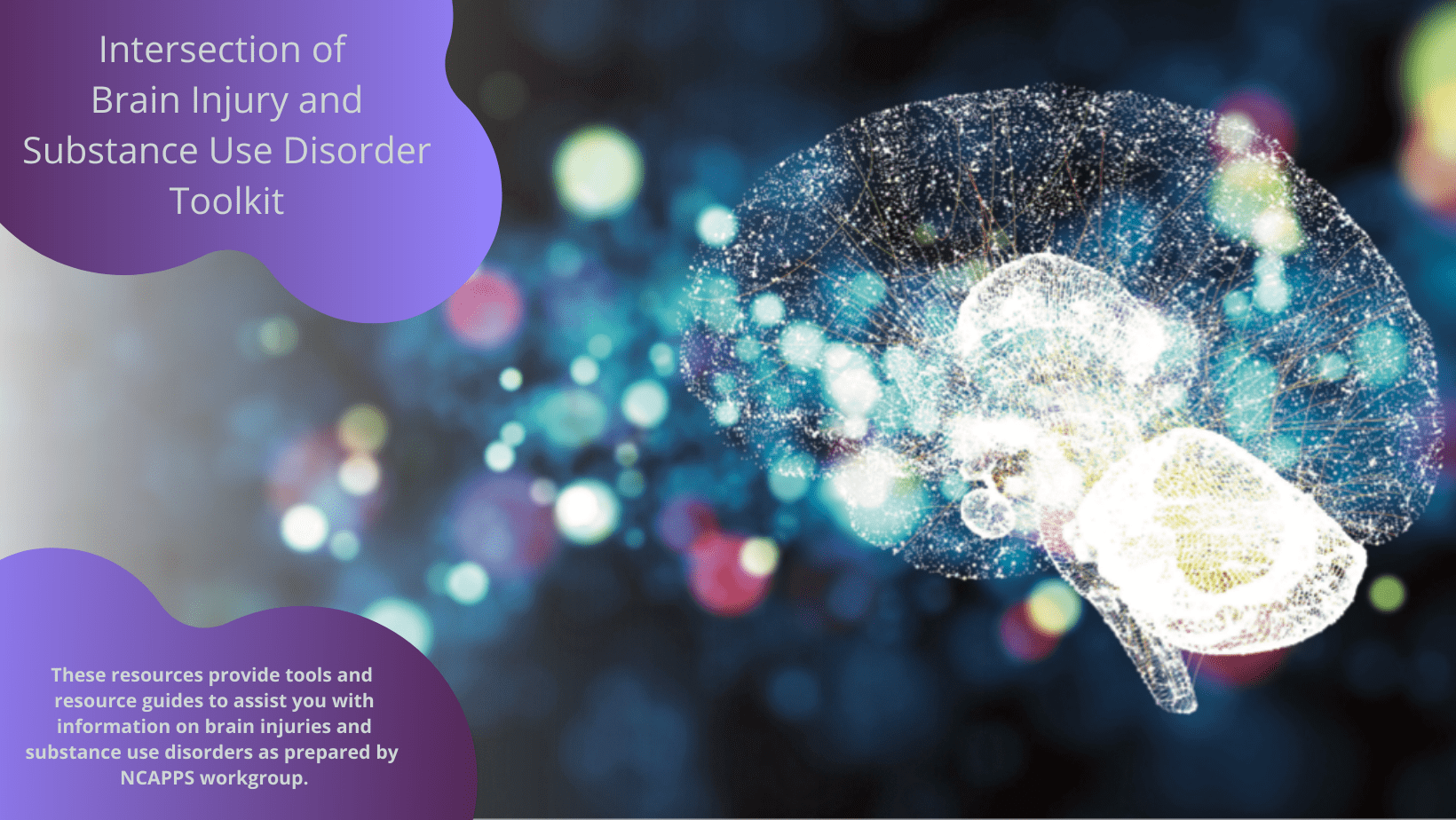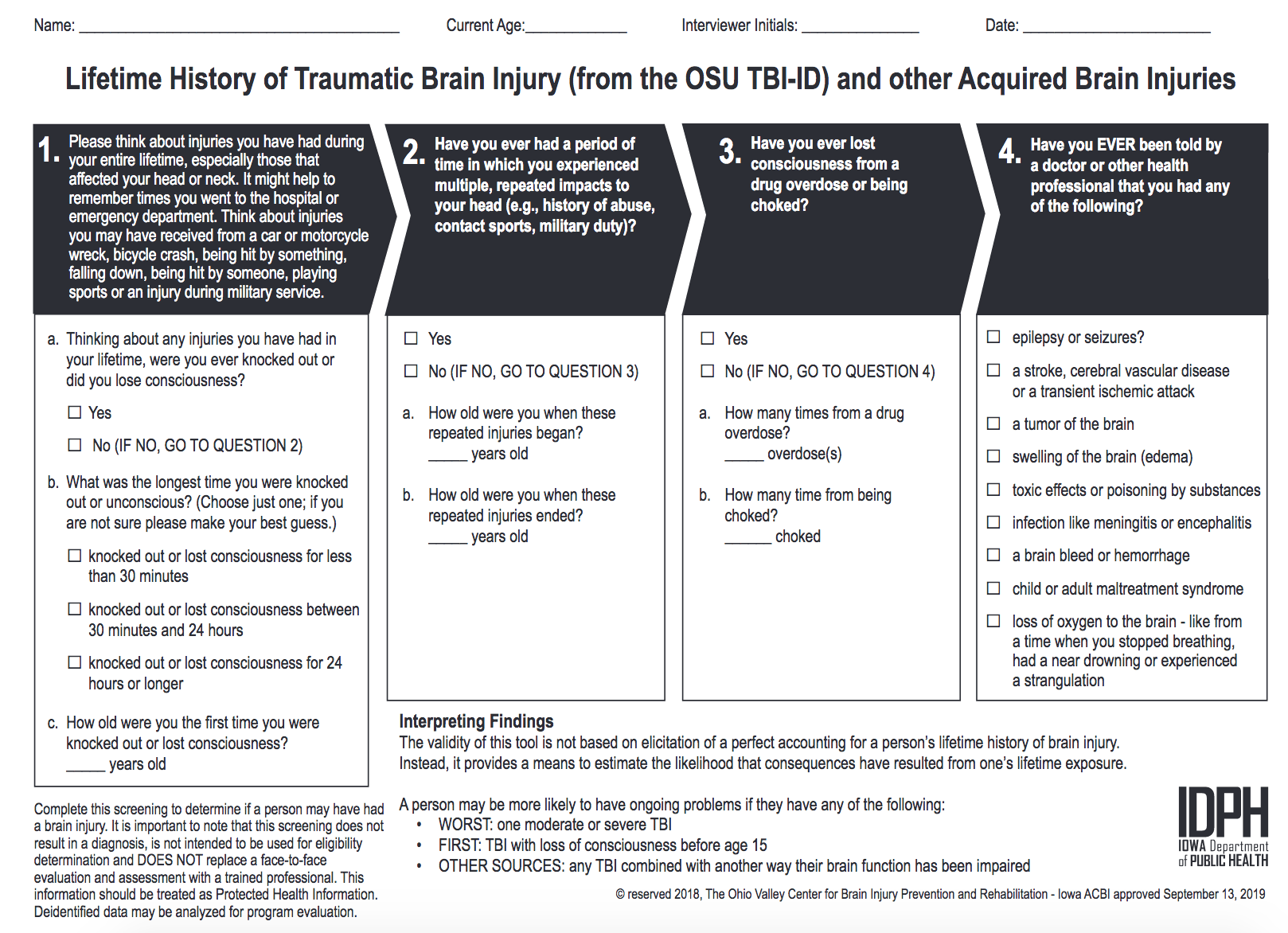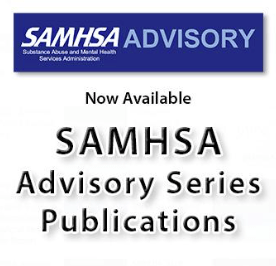Page - Brain Injury and Substance Abuse
-
-
Screening for a lifetime history of brain injury is best practice when responding to, and/or planning clinical and community based responses for clients served in health, community, and corrections services.
-
-
Accommodating the Symptoms of TBI (CLICK TO ACCESS)
-
Developed with support from the US Department of Health and Human Services by the Ohio Valley Center for Brain Injury Prevention and Rehabilitation helps providers:
-
Recognize common symptoms of Traumatic Brain Injury (TBI)
-
Incorporate compensatory strategies into practice
-
Increase the odds of treatment success for people with TBI
-
-
-
Person Centered Thinking and Planning (CLICK TO ACCESS)
-
A Power-Point that will assist the user to integrate person-centered thinking and planning into the delivery of brain injury services.
-
-
Brainline Substance Abuse and Traumatic Brain Injury (CLICK TO ACCESS)
-
This publication discusses approaches and considerations to working with people in substance abuse treatment who also have a brain injury. The publication provides specific suggestions for SUD providers working with persons who may be experiencing cognitive dysfunction.
-
-
SUBI Client Workbook (CLICK TO ACCESS)
-
The workbook is a resource for clients who have sustained a brain injury and who are in substance use disorder treatment programs. The workbook helps clients to understand the impact of their brain injury in the recovery process.
-
-
SUBI Client Workbook Second Addition (CLICK TO ACCESS)
-
The workbook is a resource for clients who have sustained a brain injury and who are in substance use disorder treatment programs. The workbook helps clients to understand the impact of their brain injury in the recovery process.
-
-
Traumatic Brain Injury and Substance Use Disorder: Making the Connection (CLICK TO ACCESS)
-
The toolkit includes content to enhance skills and resources among providers of substance use disorder services and other behavioral health treatment providers. The Mid-America and Mountain Plains ATTCs and NASHIA came together to provide critically important content regarding the negative impact of the use of alcohol and other drugs on treatment outcomes for persons with a brain injury. Readers will note that this toolkit underscores the importance of behavioral health clinicians providing necessary accommodations in treatment when serving persons with brain injuries. Throughout this toolkit and in case examples, an emphasis is placed on the negative impact on the use of substances among persons with a brain injury.
-
-
Language Counts (CLICK TO ACCESS)
-
A one page guide that promotes communicating in a strength based person centered manner.
-
-
A Substance Abuse Treatment Advisory (CLICK TO ACCESS)
-
A publication of the Center for Substance Abuse Treatment. The Advisory describes traumatic brain injury and provides substance use treatment and service providers facts about the link between substance use disorder and traumatic brain injury. The Advisory presents information about traumatic brain injury screening and management tools and it provides counselors with strategies to help identify individuals affected by traumatic brain injury.
-
-
Brain Injury Accommodation Tip Sheets (CLICK TO ACCESS)
-
Designed to identify functional challenges and identify possible accommodations following brain injury for professionals and clients/ caregivers.
-
-
Substance Use Disorders and Brain Injury Rack Card (CLICK TO ACCESS)
-
Enhancing the path to better outcomes
-
-
ATTC Tip Card (CLICK TO ACCESS)
-
What Providers Need to Know: Behavioral Health and Brain Injury
-
-
The Link Between PTSD and TBI (CLICK TO ACCESS)
-
The PTSD Monthly Update is an e-newsletter by the National Center for PTSD, Department of Veterans Affairs. Each issue features articles on trauma and PTSD topics with links to useful resources.
-
-
Screening (CLICK TO ACCESS)
-
The Advisory Council on Brain Injuries recommends screening when responding of planning for clients. Visit the site for the Brain Injury Screening Tool & Instructions.
-


